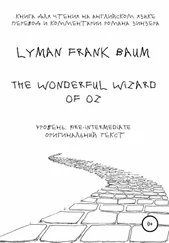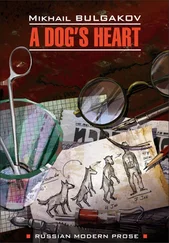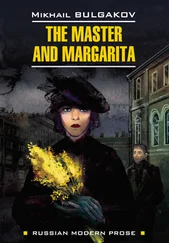Mikhail Lermontov - The Demon / Демон. Книга для чтения на английском языке
Здесь есть возможность читать онлайн «Mikhail Lermontov - The Demon / Демон. Книга для чтения на английском языке» — ознакомительный отрывок электронной книги совершенно бесплатно, а после прочтения отрывка купить полную версию. В некоторых случаях можно слушать аудио, скачать через торрент в формате fb2 и присутствует краткое содержание. Город: СПб, Год выпуска: 2019, ISBN: 2019, Жанр: Русская классическая проза, на английском языке. Описание произведения, (предисловие) а так же отзывы посетителей доступны на портале библиотеки ЛибКат.
- Название:The Demon / Демон. Книга для чтения на английском языке
- Автор:
- Жанр:
- Год:2019
- Город:СПб
- ISBN:978-5-9925-1427-8
- Рейтинг книги:3 / 5. Голосов: 1
-
Избранное:Добавить в избранное
- Отзывы:
-
Ваша оценка:
- 60
- 1
- 2
- 3
- 4
- 5
The Demon / Демон. Книга для чтения на английском языке: краткое содержание, описание и аннотация
Предлагаем к чтению аннотацию, описание, краткое содержание или предисловие (зависит от того, что написал сам автор книги «The Demon / Демон. Книга для чтения на английском языке»). Если вы не нашли необходимую информацию о книге — напишите в комментариях, мы постараемся отыскать её.
The Demon / Демон. Книга для чтения на английском языке — читать онлайн ознакомительный отрывок
Ниже представлен текст книги, разбитый по страницам. Система сохранения места последней прочитанной страницы, позволяет с удобством читать онлайн бесплатно книгу «The Demon / Демон. Книга для чтения на английском языке», без необходимости каждый раз заново искать на чём Вы остановились. Поставьте закладку, и сможете в любой момент перейти на страницу, на которой закончили чтение.
Интервал:
Закладка:
Mikhail Lermontov
The Demon
© КАРО, 2019
Все права защищены
M. Y. Lermontov
(1814–1841)
When we think of Lermontov, we see in our minds a huge mountain-peak somewhere in the heart of the Caucasus. Eternal silence reigns in its clefts and gorges. Its mass of ice and stone looks a picture of gloomy solitude. It seems to be indifferent to the turmoil of life. Still, there is boiling lava deep in its heart. Time and again it shakes from the fury of compressed inner forces. On its bare stony body little trees with lacy foliage climb higher and higher; and when the world is in bloom, winds laden with fragrance blow on its ragged brow, bringing the lure of distant lands.
Such is the poet Lermontov. This is, perhaps, why he loved the Caucasus all his life.
He is the most tragic of the Russian poets. From his very boyhood he was full of disdain for humanity, whose life he thought shallow, empty, and ugly; at the same time, he was irresistibly attracted by this very meaningless life. He cherished the ideal of a demon, a proud, lonely, and powerful superhuman creature challenging peaceful virtues and conventional happiness; at the same time he was fiercely craving for mortal love and sunlit human happiness, the absence of which filled his heart with pain. He had a cool and strong intellect, a power of analysis and criticism which revealed the futility of endeavor in this world and dictated an attitude of bored aloofness; at the same time he was torn by mad passions prompting him to the most unreasonable actions. He was inclined to protest, to repudiate, to curse, and almost without noticing he drifted into a prayer or saw the vision of an angel singing his quiet song over «a world of grief and tears». Altogether he is a profoundly unhappy nature, just the reverse of his older brother Pushkin.
If Pushkin is primarily the poet of the Russian soul and Russian nature, Lermontov is the first of the great Russian poets of the spirit. And if Pushkin is fundamentally national, acquiring international significance through his closeness to his native land, Lermontov is of universal value in himself as expressing those doubts and moods and gropings which are common to all cultured men. This did not prevent him from being a genuine Russian poet. One is even justified in looking for a connection between his dark rebellious moods and the dark conditions of the society in which he lived.
Lermontov is a self-centered poet. «The most characteristic feature of Lermontov's genius», Vladimir Solovyov says, «is a terrific intensity of thought concentrated on himself, on his ego, a terrific power of personal feeling». This, however, is no self-centeredness. Lermontov seeks refuge within himself because he finds no values in the ephemeral existence of the world. He sinks into brooding moods not because he finds in them satisfaction, but because life does not quell his thirst for harmony and truth. He is at war with society, with humanity, with the universe. He is at war even with God in the name of some great unearthly beauty which only at rare moments gives to his soul her luminous forebodings.
If Pushkin is the poet of all the people, Lermontov is the poet of the thinking elements in it. As such he played a colossal rôle in the spiritual history of his country. Generation after generation learned from him to hate the sluggishness of Russian life and the convention of every life, to repudiate compromises, to understand the longing of the soul for things non-existent, and to cherish freedom in the broad sense of the word.
Lermontov's form is in full accord with his moods, varying from the most exquisite tenderness to «verses coined of iron, dipped in poignancy and gall», from slow, thoughtful, and melancholy lines to volcanic outbursts of fury. In expressing delicate shades of emotions and in dignified refinement Lermontov is, perhaps, even superior to Pushkin. There is more of the elusive quality in his poems, that which cannot be expressed in definite words.
«Horrified by the triviality of life, by its corruption and helplessness, Lermontov sounded the motive of indignation. This indignation, so rare in Russia, utterly alien to Pushkin, timidly sounding in the work of Tchatzky [1] Tchatzky (Chatsky) is the main character of the comedy «Woe from Wit» by A. Griboedov. – Ed.
, unknown to Gogol, was something new and unheard of. Through Lermontov's indignation, the Russian citizen for the first time became aware of himself as a real human being. The feeling of human dignity was stronger in Lermontov than all other feelings. It sometimes assumed unhealthy proportions, it led him to satanical pride, to contempt for all his surroundings. And in the name of this human dignity, unrecognized and downtrodden, he raised the voice of indignation».
«It appeared to him that not only society, those hangmen of freedom and genius, but also the Deity that gave him life, are making attempts on his inalienable rights as a man and are preventing him from living a full, eternal life which alone was of value to him. He saw no prospect of eternal life, no fullness of existence, no love without betrayal, no passion without satiety, and he did not wish to agree to less, as a deposed ruler does not wish to receive donations from the hand of the victor…»
«Lermontov is a religious nature, but his religion is primarily a groping, an indefinite, hazy admittance of life's tragic mystery».
Evg. Solovyov (Andreyevitch)«Lermontov introduced into literature the struggle against philistinism. Not, perhaps, till the end of the nineteenth century did philistinism meet a more ruthless, merciless foe. His aversion to philistinism is the key to his entire conception of life. His hatred for everything ordinary led him to his outspoken individualism and brought him near to that real romanticism which was unknown in Russia before him. It also imbued him with that contempt for the surrounding world which it is customary to view as Lermontov's characteristic pessimism. Lermontov, however, is not only a pessimist. Lermontov believed that life in itself could be beautiful, even at present. It could be beautiful, and it was all soiled under philistine rule, – this was for him the tragic contradiction. Hence his pessimism, his misanthropy, his hatred for life. He sees ethical philistinism in all social groups, in all society, in humanity at large. From this standpoint he is perhaps the most outspoken individualist in all Russian literature».
Ivanov-Razumnik« The leading motives of Lermontov's charming and sparkling poetry were a protest against the restrictions of individual freedom, a detached attitude towards an oppressing world, and the lure of another world which though not shaped clearly, not based on a definite foundation, is possessed of an irresistible power. This luring world is ordinarily somewhere in the past; it is a reminiscence, not a hope; at times it is heaven, at times, nature, at times, an idea, unclear yet so wonderful that the very sounds which give an inkling of its dark meaning cannot be listened to 'without emotion.' It is this better world which gives real meaning to a soul reminiscent of it, and the idea of this world lives in many of Lermontov's heroes.
The idea of something which does not allow us to accept our world as the best of all worlds, an idea appearing to men in the best moments of their life and stirring them to action and changes, was very strong in Lermontov's mind. The circumstances of his personal life and the conditions of his time might have strengthened his longing for another world; fundamentally, however, this longing is an inherent quality of mankind, and through it, Lermontov is close not only to his own contemporaries, but also to readers of the present and the future».
Читать дальшеИнтервал:
Закладка:
Похожие книги на «The Demon / Демон. Книга для чтения на английском языке»
Представляем Вашему вниманию похожие книги на «The Demon / Демон. Книга для чтения на английском языке» списком для выбора. Мы отобрали схожую по названию и смыслу литературу в надежде предоставить читателям больше вариантов отыскать новые, интересные, ещё непрочитанные произведения.
Обсуждение, отзывы о книге «The Demon / Демон. Книга для чтения на английском языке» и просто собственные мнения читателей. Оставьте ваши комментарии, напишите, что Вы думаете о произведении, его смысле или главных героях. Укажите что конкретно понравилось, а что нет, и почему Вы так считаете.












